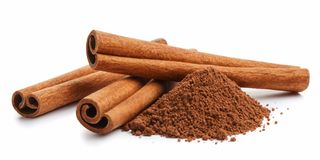Premium
Health & Nutrition: Diet and exercise more effective than drugs in preventing diabetes

Studies show that diet and exercise are cost effective against diabetes. PHOTO|FOTOSEARCH
What you need to know:
Summary:
- So what’s the alternative? Studies have shown that diet and exercise are not only more than twice as effective as drugs in preventing diabetes, but are also more cost effective
We all have our pet peeves, things that, for want of a better word, annoy the crap out of us. From people who are chronically late to those who eat with their mouths open, I realised the other day that my personal bugbear was people who take medication when they don’t have to. I’m not talking about people who don’t know of an alternative, rather those who know of the alternative and then still take the medication (and complain of the side effects!). Nowhere is truer than of type 2 diabetics taking insulin.
Diabetes is a disease which is characterised by too much glucose in the blood, either due to decreased insulin production (type 1) or decreased sensitivity to this insulin (type 2). Insulin is the hormone responsible for reducing blood sugar levels and when this mechanism doesn’t work, blood glucose can become toxic, leading to damaged organs, including the kidneys, eyes, heart, nerves and major arteries.
Type 1 diabetes normally develops before early adulthood, and occurs when the pancreas is no longer able to produce insulin, so individuals have to give themselves insulin injections in order to lower their blood sugar to within the desirable range.
Type 2 diabetes however usually occurs when a person is overweight and the body cannot properly use the insulin that is produced (insulin resistance). Conventional drugs either increase sensitivity to insulin or enhance insulin production. Insulin is only injected when these stop working. While this may be necessary in the short-term, in the long-term, the same insulin that’s essentially keeping you alive starts to cause inflammation (the main cause of disease) over time.
So what’s the alternative? Studies have shown that diet and exercise are not only more than twice as effective as drugs in preventing diabetes, but are also more cost effective. Furthermore, following a low glycaemic diet has even been reported to completely reverse type 2 diabetes (the glycaemic index is simply a measure of how much a food will affect blood sugar control – the lower the better).
The principle behind a low glycaemic diet is to eat foods which provide a slow release of sugar (complex carbs like brown rice) together with lean protein foods (such as chicken or lentils). Not only can this diet result in weight loss, but it also improves the way the body responds to insulin, helping to keep blood sugar low.
Along with the low glycaemic diet, including cinnamon in your diet is paramount. Cinnamon contains an ingredient called MCHP, which mimics the action of insulin, and therefore increases glucose metabolism. All you need is one gram daily.




